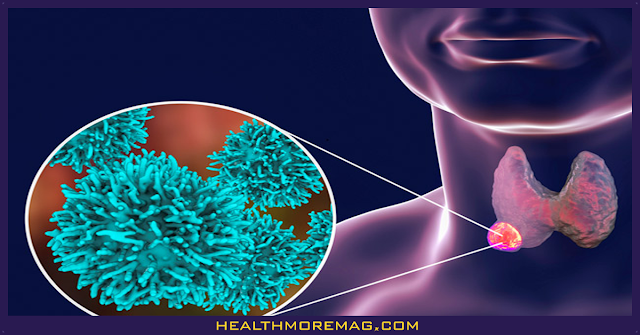How to treat a thyroid nodule?
If the thyroid nodules are mostly benign, they should be treated in some cases. Thermo-ablation, radioactivity or surgery? Update on the different treatments according to the nature of the nodule.These small balls on the thyroid are common: about 50% of people have a nodule after 50 years. "On the discussion forums, many are afraid that their nodules become dangerous, wonder if it would be better to withdraw ...", says Béate Bartès, president of the association of patients Living without Thyroid. However, they are benign in nine out of ten cases and are less and less operated. That's when and how to treat them.
The nodule is benign and does not bother you
Simple monitoring is recommended. An echography, every 1 to 2 years, controls their evolution, as well as a dosage of the TSH. The needle aspiration is prescribed if the aspect becomes suspect (contours not clear, vascularized nodule ...): cells are taken with a very fine needle, under local anesthesia, to be analyzed.
The nodule annoys you
The nodule can be seen, causing difficulty swallowing or pain. He is then removed by surgery. "Ideally, only half of the affected thyroid is removed, so you do not have to take a life-long treatment for hypothyroidism. But if there are nodules on both sides, it must be completely removed, "says Dr. Patrick Aïdan, surgeon of the face and neck. This leaves a 3 to 6 cm scar at the base of the neck and requires an average of 15 days off work. A new robotic surgery goes through an incision under the armpit, with an "invisible" scar, but it is currently practiced only in a few hospitals.
There is an alternative: thermo-ablation that does not require surgery, scarring or treatment for life. The doctor heats the nodule to make it necrotic, under local or general anesthesia. Radiofrequency is the most widely used method, especially for large nodules; Echotherapy (high intensity focused ultrasound) is less invasive and more suitable for small nodules (less than 3-4 cm). Problem: These procedures are expensive, between 1,000 to 3,000 €, and are not yet reimbursed.
The nodule produces hormones
Some nodules called "hot" or "hypersecreting" produce hormones and can lead to hyperthyroidism. They are treated with radioactive iodine administered in capsules or in liquid, 1 to 2 doses taken in the hospital as an outpatient.
By destroying the thyroid, this radioactivity treatment usually leads to hypothyroidism. Surgery can be discussed in some cases, especially for women with a desire for pregnancy (incompatible with iodine).
Thyroid cancer is suspected
If the needle aspiration confirms that the nodule is cancerous (less than 5% nodules), remove it by removing half or all of the thyroid. The operation allows total healing in more than 90% of cases. "But we still operate too many nodules wrongly! Said Dr. Aïdan, who recalls that a large nodule is not necessarily cancerous.













Post A Comment:
0 comments: